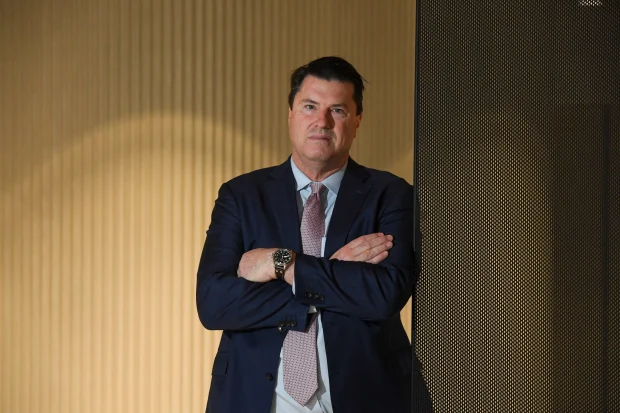

Trumpism is coming and the call from Hamish McLennan, chair of ARN Media, is case in point as he calls for an end to the “archaic” laws that would stop his company buying Nine’s group of radio stations. McLennan wants these laws relaxed. In the US, its new president would say ‘Yes’ to such a request from the big end of town. Here however, with a Labor Government in power, it’s very unlikely to happen.
McLennan is arguably one of Australia’s most powerful wheelers and dealers in the country.
This is how the AFR’s Kylar Loussikian positions him: “Mr McLennan is one of the most prominent media executives in the country, chairing ARN Media, which owns the KIIS and Gold radio stations and the iHeart podcast network, as well as the News Corp Australia-controlled REA Group, Australia’s largest real estate listings platform.”
In firing his first shot and hoping that our national leaders will adopt a Trump-like commitment to deregulation, he went public saying he’d like to buy Nine’s 2GB in Sydney, 3AW in Melbourne and 4BC in Brisbane.
These top rating businesses are enduring competition from the likes of Spotify, streaming services and podcast, which are also attracting audiences and advertising dollars and.
In a changing media world, radio stations need economies or cost-savings, syndications and less restrictions to be profitable but McLennan says the archaic laws are making it too hard to compete effectively.
So, what are these laws?
Cross-media ownership laws were introduced by then-Treasurer Paul Keating in 1987 with the aim to prevent a single owner from dominating a market area (like a capital city or rural area) by owning television or radio stations in the same area as a newspaper. These laws have been tweaked and changed for the arrival of the internet, streaming services and other technical innovations that have increased the many media offerings available for consumers.
Existing cross-media ownership laws aim to prevent a single owner from dominating a market area - like a capital city or rural area - by owning television or radio stations in the same area as a newspaper.
However, in 1994 in The Canberra Times even Keating noted that the times were changing. This is what he said: “The cross-mcdia rules went in in 1984 or 1985 and since then... I mean, the rise of personal computers, the change in photonics, fibre optics, all of these changes are changes, which are in a sense running ahead of the Policy. One would be confident that one could be reasonably effective in maintaining a diversity of power bases in the Australian media, but I don’t think one should even try to be confident about resisting the shift of these technologies.”
Not only do media companies have competition from abroad, even the ABC has become a formidable force with its online growth, multiple TV stations and involvement in streaming and podcasting. When a government-owned media service becomes more competitive, it undermines the profitability of private rivals, and all these new age forces have the likes of Hamish McLennan asking for change.
Opposing him and his demands will be left-leaning political groups who still worry about the power of Murdoch-controlled News Corp and even the influence of Nine Entertainment, which owns the Nine TV network, Stan, the radio stations McLennan wants, along with The Age, SMH, AFR and other newspapers/websites.
Loussikian gave us a glimpse of our potential broadcasting future when he drew attention to the famous (or maybe infamous!) US podcaster Joe Rogan, who goes out on Spotify and was a big influencer of young voters who supported Donald Trump at last year’s election.
This is what the AFR’s Sam Buckingham-Jones informed us about Rogan last November: “The comedian, actor and former TV host is one of the world’s biggest podcast hosts, with more than 14.5 million followers on audio platform Spotify and 17.3 million subscribers on YouTube, where he has more than 5 billion views across his videos. He reportedly signed a deal worth $US250 million ($386 million) with Spotify earlier this year.”
As Bob Dylan wrote and sang: “Come senators, congressmen, Please heed the call, For the times they are a-changin’.” The combined impact of two T’s — Trump and technology — is bound to see future governments review our current cross media ownership laws.